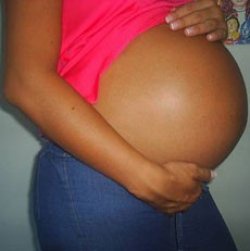Tema Metropolitan Directorate of Health Services recorded 35 maternal deaths, with severe haemorrhage identified as the major cause of all such deaths in Tema last year.
Out of the total number, 16 of the women who went to the various hospitals in the metropolis in the year 2014 died as a result of other reasons.
Dr John Yabani, the metropolitan health director of Health Services, disclosed this during a blood donation exercise organised by the Tema Metropolitan Assembly (TMA) and the Tema Metropolitan Health Directorate, in collaboration with BC Global Foundation, a Tema-based NGO.
The blood donation was to restock the Tema General Hospital (TGH) blood bank to help save women during childbirth.
He bemoaned the situation where some women resort to prayer camps during conception period without attending to hospital, stating that “people waste so much time in prayer camps during pregnancy period sometimes the child dies in the expectant mother’s womb before she would report to the hospital.”
The Tema Health Services boss called on religious leaders to encourage their members to use health facilities after they have sought for spiritual attention to improve their health status.
He further explained that the primary causes of maternal mortality in the country could also be blamed on some traditional practices.
Dr Yabani mentioned that some of these causes include traditions and belief systems of the people, stressing that some women do not see the need for healthcare during the conception period.
According to him, his outfit would continue with its awareness creation on maternal mortality amongst the public in order to get everybody on board for its prevention, advising pregnant women to report immediately to the hospital as soon as they detect new changes during their conception periods.
According to him, the only way to help combat maternal mortality is to have the total involvement of the community in the fight against maternal mortality.
For his part, Isaac Ashai Odamtten, the metropolitan chief executive (MCE) of Tema, described the situation as worrying which needs much attention.
As part of the measures to address the situation, the MCE disclosed that his assembly would institute a quarterly routine blood donation exercise to refill the TGH and the National Blood Bank (NBB) in order to help save lives.
He called on the public to get actively involved in blood donation exercises in order to stock enough blood at the NBB to help women who need blood during childbirth.
Mr Ashai Odamtten mentioned that about 20 to 30 women deliver daily at the TGH, adding that this is a big issue to be looked at since the hospital lacks doctors and nurses to attend to all these women.
One out of five of these women go through a caesarian operation, which takes about two hours per person, leaving the doctor no room to attend to other emergency situations at the hospital.
Health News of Monday, 9 March 2015
Source: Daily Guide
35 Maternal mortality cases recorded in Tema

















